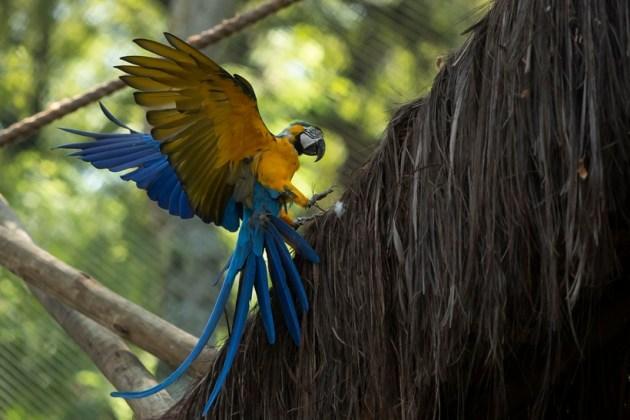
Extreme Heat May Have Cut Tropical Bird Numbers by 38% since 1950: Study
Climate change is no longer a distant threat, but a harsh reality that is taking a devastating toll on the natural world. From melting glaciers to rising sea levels, the consequences of global warming are far-reaching and alarming. Now, a new study has added to our concerns, suggesting that extreme heat from climate change may have reduced the global tropical bird population by 25-38% between 1950 and 2020.
The research, published in the journal Nature Ecology and Evolution, is a stark reminder of the impact of human-caused climate change on the world’s bird population. The study, led by scientists from the University of East Anglia, analyzed data on temperature records, bird population trends, and species distribution patterns to reach their conclusions.
According to the researchers, the extreme heat caused by climate change has had a more significant impact on tropical birds than direct human activities such as habitat destruction or hunting. The study found that the majority of the decline in tropical bird populations can be attributed to the increasing frequency and severity of heatwaves, which are a direct result of global warming.
The researchers used statistical models to analyze the relationship between temperature and bird populations, taking into account factors such as elevation, latitude, and vegetation cover. They found that for every degree of warming above the average temperature, the bird population declined by around 2.5%.
The study’s lead author, Dr. Hans Lee, said, “Our results suggest that climate-driven heat extremes have had a profound impact on tropical bird populations. The consequences of this are far-reaching, not only for the birds themselves but also for the ecosystems they inhabit.”
Tropical birds are particularly vulnerable to climate change due to their limited geographic ranges and reliance on specific habitats. Many species are also migratory, which means they are exposed to multiple climate-related stressors during their annual journeys.
The study’s findings are alarming, to say the least. If left unchecked, climate change could lead to the decline or even extinction of many tropical bird species. This would not only be a tragedy for the birds themselves but also have significant consequences for ecosystems and biodiversity.
So, what can be done to mitigate the effects of climate change on tropical birds? The study’s authors suggest that conservation efforts should focus on protecting and restoring habitats, as well as addressing the root cause of climate change – human-caused greenhouse gas emissions.
Governments and policymakers must take immediate action to reduce emissions and transition to renewable energy sources. Individuals can also make a difference by reducing their own carbon footprint, supporting organizations that work to protect endangered species, and advocating for climate policy changes.
The study’s findings serve as a stark reminder of the urgent need for climate action. As the planet continues to warm, it is essential that we prioritize the well-being of our planet’s most vulnerable inhabitants – including the tropical birds that are already feeling the impact of climate change.






